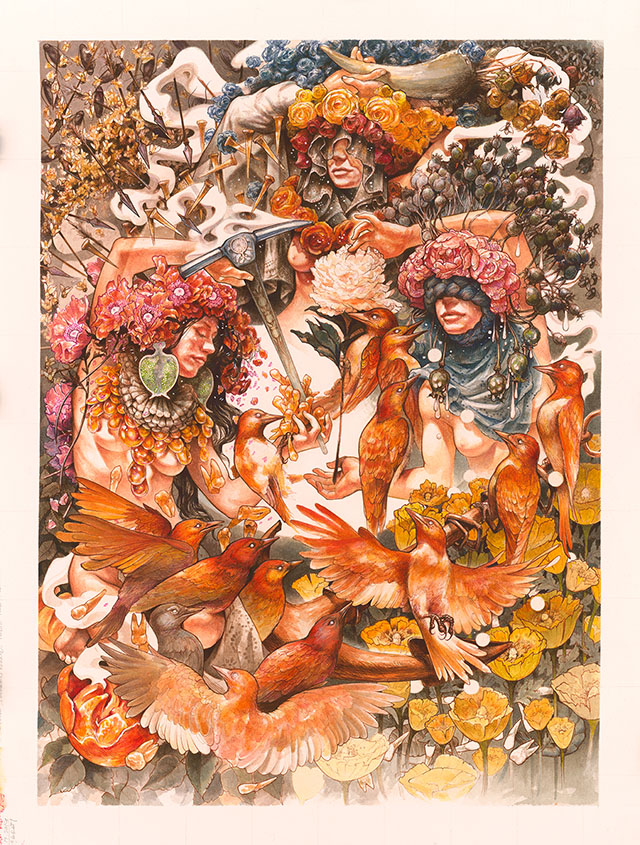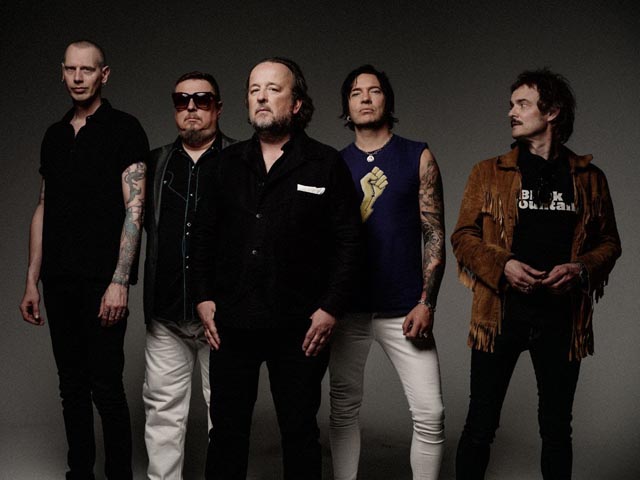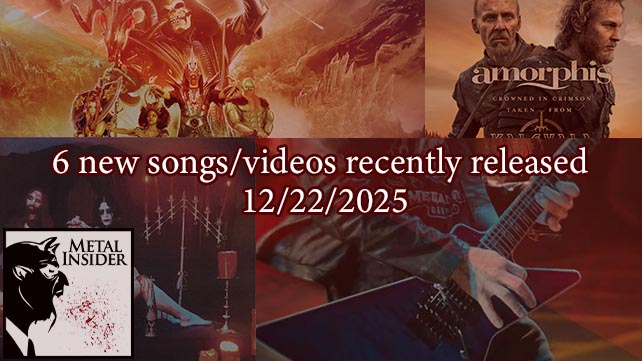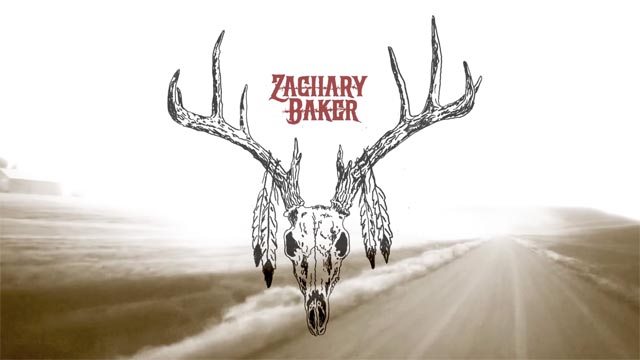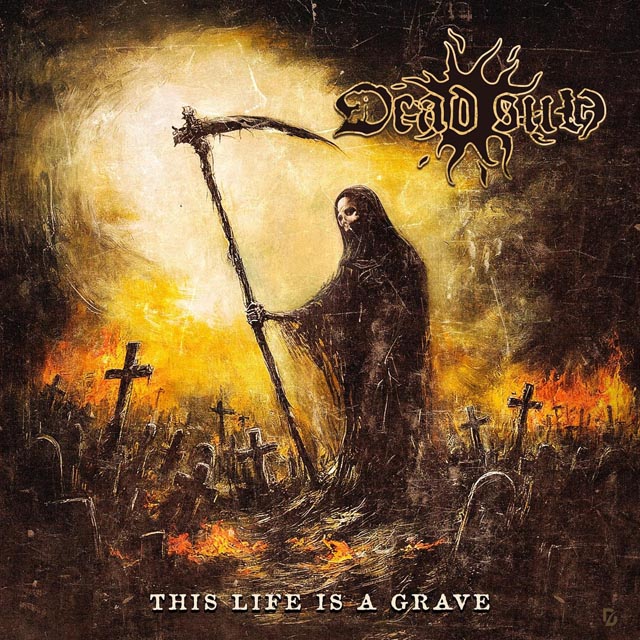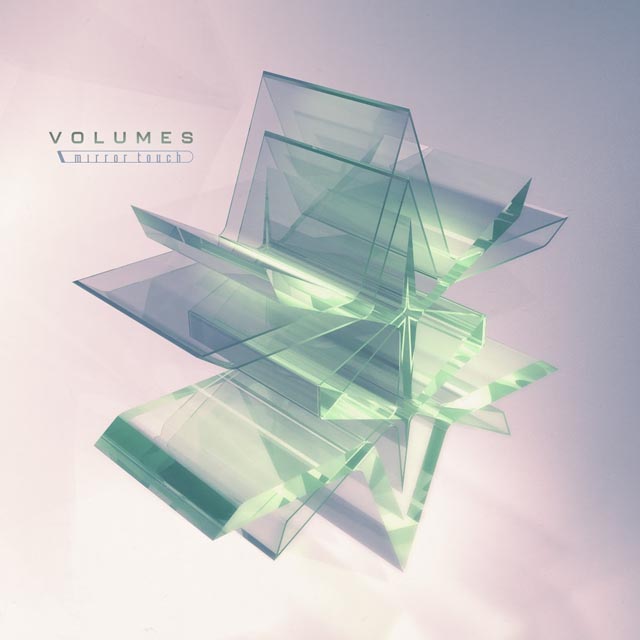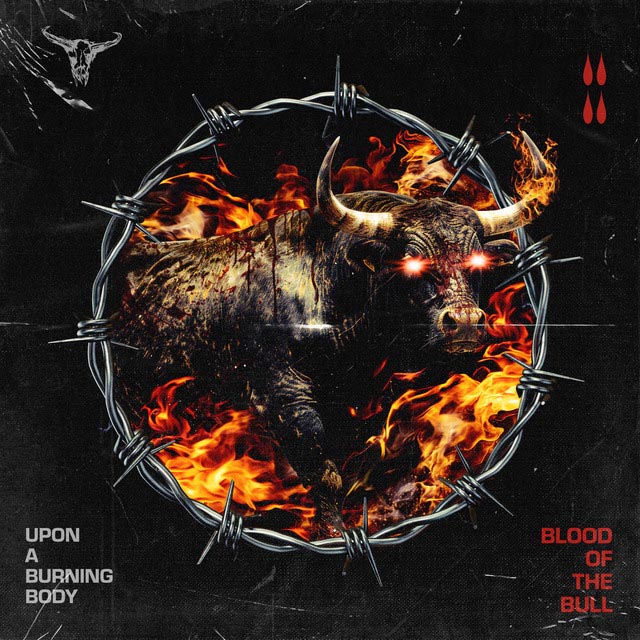 Baroness vocalist/guitarist John Baizley apologizes in advance. Having just become a first time father, he might need to end the interview at a second’s notice. Thankfully that doesn’t happen, but Baizley and the rest of Baroness – Alan Blickle, Peter Adams and Summer Welch -have also birthed what Decibel is suggesting could be the album of the year with their second full length, The Blue Record. Metal Insider spoke with the singer/guitarist and accomplished graphic artist about album sequencing, hype, and selling out. The Blue Record is released this Tuesday, October 13 on Relapse.
Baroness vocalist/guitarist John Baizley apologizes in advance. Having just become a first time father, he might need to end the interview at a second’s notice. Thankfully that doesn’t happen, but Baizley and the rest of Baroness – Alan Blickle, Peter Adams and Summer Welch -have also birthed what Decibel is suggesting could be the album of the year with their second full length, The Blue Record. Metal Insider spoke with the singer/guitarist and accomplished graphic artist about album sequencing, hype, and selling out. The Blue Record is released this Tuesday, October 13 on Relapse.
The new record is called the Blue Record, as opposed to the Blue Album. Any particular reason why you changed up the name?
No, not really. We like to be fairly simple when it comes to titling our releases and it was just the way things panned out. I don’t know, I don’t really have a good answer for that question. [laughs]
Like what can you call the next record? The [insert color here] Collection of Songs?We’ve always felt like titling our releases something that is open to interpretation and accessible and obvious and non-challenging. It’s become sort of a joke maybe outside of our band, but we take it pretty seriously, and with each of our records there is a very distinct reason we’ve given it the title. It’s not something we like to discuss but the reason that we go such a basic and obvious route is… there’s kind of a cool tradition in rock-n-roll history that there are bands that just don’t see fit to give their albums long-winded pretentious or even insightful album titles. I think Black Sabbath [and] Led Zeppelin just to name two fairly obvious ones for me. Queen did the same thing. It offers a very open entry point for an audience.
The new album sounds more ambitious than The Red Album.
I think that any musician who’s interested in challenging himself has always got that stretch in mind. I think walking out of the studio from the last record we already knew 50% of the directions to stretch in. With the advent of Pete Adams as our second guitar player there was a whole new musical world that was opened up to us and we really tried to explore musically in that universe that existed as a conglomeration of the four of us. One of the most initial and basic ideas behind this record was to challenge ourselves, and in challenging ourselves we needed to try new things. We needed to put ourselves in situations that weren’t necessarily comfortable or easy to deal with. Areas that our technical expertise was lacking or the overall weaknesses of the band, we tried to develop them and turn them into competencies or strengths. I think that’s where some of the disparate sounds come from, just our disparate interests and just a common goal that we wanted to continue to keep open minds when writing, performing and making music within this band.
Are there any bands in particular that informed the creation of the record?
There were a couple old ones, I don’t like to use some of the more modern bands as templates or starting points. I like to go back towards the classics. I think a lot of those classic albums have become the archetypes and kind of set the bar. That said, we work within that context: there are two guitars, bass, drums, and vocals and that’s about as standard as it gets, so given those structures and relative confines of working with that type of a band, we try to explore within and find something interesting to do. As far as reference points, we use them very loosely. With the last record, I based the sequencing of the record on a couple records I considered classics at the time. With this one it wasn’t so much a sequencing thing, the goal was to create an unintentional subconscious narrative in the way that some of our favorite bands had done. One of my favorite and most listened-to records during the writing process was Queen’s A Day at the Races. That’s a polarizing record. Not everybody likes it, but I think it’s absolutely put together in such a genius way. Despite the fact that it’s a collection of rock-n-roll songs and dramatic almost vaudevillian type-stuff, there’s this narrative and cohesion to that record that really struck me as something that hasn’t been developed in recent years that I’m aware of. There’s like a framing to it, like a storytelling aspect almost like you’re listening to a movie score. That was the starting point, where we said ‘hey let’s do that instead of writing a bunch of singles.’
I really enjoy the sequencing of both of your records. Listening to the Red Album, it’s like listening to an actual album, with Side 1 and Side 2. It’s the same with the new album, where there are themes that repeat themselves throughout the album.
We feel like that’s the way our music is best listened to. The sequencing of both the Blue Record and the Red Album were pretty solid before we recorded either one of those records. In a way, its kind of limiting because there’s no guesswork there with the sequencing but it also allows, most specifically with this record, to really understand those gaps. I think the gaps are where the real magic happens. My favorite part of the set, after touring on albums for years and years, is what we do unintentionally in between songs and we really tried to allow some of that to seep onto this record, some of that unintentional, unscripted, unrehearsed stuff. I think it helps tie everything together and it’s just a testament to how solidly we believe in the album as a medium.
With sequencing so important to you, would you score a film?
I absolutely would score a film. There’s a really cool history with musicians scoring films. One of the real direct influences to the album was the Neil Young score to Dead Man which was a sparse thing very much in that sort of country western theme. Something like that is really a different medium and it forces you to inspect things, and that’s the methodology of the record. We kind of overwrote the record, in a sense that if something felt redundant or was dragging part of that unintentional narrative along too much, even if it was a great song, we decided to leave it off the record in favor of continuity.
The hype machine is in overdrive for the new album. Do you enjoy the higher profile, or would you rather sneak in under the radar like you did on the last record?
In a perfect world it would be awesome to exist in a vacuum where everything is totally merit-based, where good bands are good bands and bad bands are bad bands. Unfortunately we have to operate in this hype mechanism which is a total double-edged sword. Within Baroness we try not to pay too much attention to it and take it with a grain of salt because at the end of the day we still have to get up on stage and make these songs happen. An audience is a bullshit detector. We could put this record out and if it’s successful enough to play a show on it, we can rest comfortably on our laurels but we’re always up for a heaping serving of humble pie. That’s no problem for us, we enjoy the challenge.
Do you consider yourselves a metal band?
Do we? I consider myself a metal fan. If you were to look in my collection you would find an overwhelming amount of metal and I think if you asked everybody you would get slightly different answers. I am firmly aware that there is a huge metal element in what we do and I will never deny the fact that we have come from a punk rock, heavy metal, hardcore background. We cut our teeth in basements and in dingy clubs in front of three or four people. I have no idea where we are going, and I think you as a critical listener can definitely define it a lot better. I love metal, I’ll end by saying that.
You’ve toured with some pretty credible bands so far. Do you enjoy being able to control who you play with, or would you jump on an arena tour?
Within Baroness we’ve always had this sort of open-minded policy where it’s cliché to say, but there’s no such thing as a bad idea. Anything is open, but I think what we would never do is tour with the same type of band consistently without adding any variety in there. When we get to call the shots we’ll try to get a band like Earthless or Iron Age or Torche or Pig Destroyer. The bands we feel comfortable with and listen to. But by the same token, no problems are solved by repeating that same cycle over and over again so when there [have] been more interesting offers, we at least entertain them. You’ll see some diversity in our touring schedule.
What did you think of playing the Scion Fest earlier this year?
That was the best type of experience that you could have. It was absolutely perfect. The fact that it went off without a hitch was staggering. They were basically treating us and all our friends, who are for all intents and purposes a dirty, boisterous group of people, like pop stars. It was really weird; we all got taken care of in a way that was unfamiliar to most of us. Here you have 40 totally happy, content bands, and on top of it, the crowds don’t have to pay to get in. So you have this 100% down to earth, happy, contented audience, a number of stages and add every band that I’ve ever wanted to see or tour with or share a stage with. What bad can you say about that?
Do you think being in Baroness raises your profile as a graphic artist?
I would be lying if I said that I didn’t think so. I always try to keep at least some degree of separation between the two and not to use one against the other.
How do you differentiate between the different artwork that you do? What makes Baroness art Baroness art as opposed to Darkest Hour, for example?
With Baroness art, I’ve got a more familiar group of people to work with and I can do whatever I want, so to speak. Some ideas that I would normally consider a little dodgy for certain bands, in terms of style or a set of images or an underlying meaning, with Baroness it’s all fair game. I think the dudes in the band love that, and we get to pour our heart and soul into our music and our visual identity.
How many requests do you get to do artwork for bands?
[laughs] A lot.
How often do you have to say no?
I haven’t said yes in a while. There’s a lot of bands out there.
What makes you say yes to a band, do you have to know them or really get their art?
I don’t have to know them, but most of the bands I’ve worked with I have known. It’s a matter of friendship, it’s a matter of respect or it’s a matter of admiration. In the best-case scenario it’s a combination of all three. I have to enjoy the music. It’s not a pay day for me. The amount of time that I spend making the artwork for the band is slave labor basically [laughs] because I’ll spend hundreds and hundreds of hours on things. It’s not for profit, it’s just because I love these bands and I love what they’re saying or where they’re going with their music and I want to be a part of it.
Do you have a limit? If a corporation wanted you to do some artwork would you do it? Would you go beyond album covers, T-shirts, the type of art you’ve generally done so far?
I prefer at this point going outside of the T-shirt/CD cover realm and I’m trying to move into something that seems a little bit more like fine art to me. As far as doing commercial art, it is the ultimate double-edged sword for an artist. The control over the image, the control over the meaning is non-existent in certain instances and that doesn’t feel good. It doesn’t excite me, it doesn’t drive me, but given the current circumstance and given some of my personal circumstances I’ve taken on commercial projects at certain points you know when my dogs need food. [laughs] I don’t like to say there are categorically things that I won’t do. There are, but I don’t need to be specific about those. But the gross companies and total lack of control that certain projects would require – I wouldn’t. I’d rather turn down the money and do something that hits a little closer to home that has a little bit more humility attached to it.
So you’re probably not going to do any Axe Body Spray print ads anytime soon?
I can say definitively I will never work for Axe Body Spray. That will not happen.


